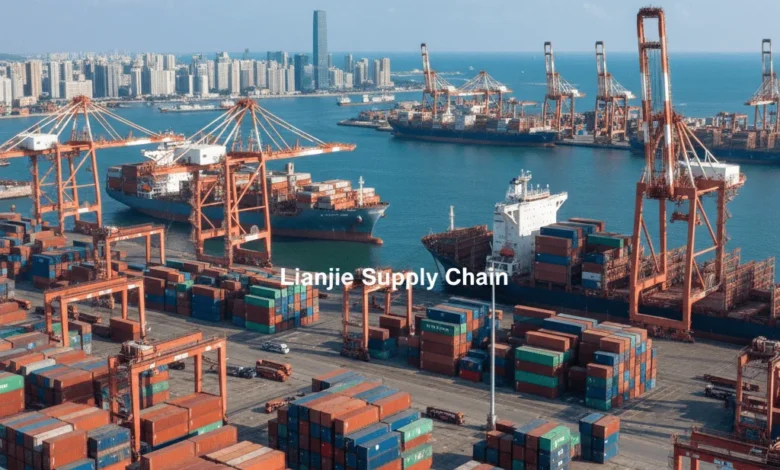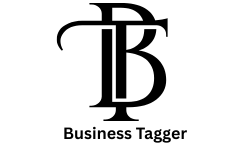Lianjie Supply Chain Explained: Your Gateway to Global Sourcing from China

Global trade may feel like a maze, but platforms like Lianjie Supply Chain are rewriting the rules. Acting as a gateway between global buyers and China’s powerful manufacturing base, Lianjie goes beyond being just another sourcing website. It’s a full-service supply chain partner that helps businesses find reliable suppliers, ensure product quality, and streamline logistics all under one roof. For companies looking to scale smarter and avoid the common pitfalls of international trade, Lianjie Supply Chain offers a clear path forward.
Table of contents
- What is Lianjie Supply Chain?
- How Does Lianjie Supply Chain Work?
- Why is Lianjie Supply Chain Important Today?
- What Industries Use Lianjie Supply Chain the Most?
- What Sets Lianjie Supply Chain Apart from Other Platforms?
- Case Study: How One Business Cut Costs with Lianjie Supply Chain
- What Challenges Does Lianjie Supply Chain Help Solve?
- How Can a Business Get Started with Lianjie Supply Chain?
- Conclusion
- FAQs
What is Lianjie Supply Chain?
When people first hear about Lianjie Supply Chain, the obvious question is what exactly is it? Simply put, Lianjie Supply Chain is a global sourcing platform based in China, designed to connect international buyers with reliable Chinese suppliers. Unlike traditional trading companies that act as middlemen, Lianjie operates as a supply chain enabler helping businesses not just find products but also manage quality checks, logistics, and long-term procurement strategies.
The platform functions as a bridge, especially for businesses in the U.S., Europe, and Asia-Pacific that want direct access to China’s vast manufacturing ecosystem without the risks of miscommunication, product inconsistencies, or shipment delays.
How Does Lianjie Supply Chain Work?
Imagine you run a mid-sized retail business in the U.S. and want to source eco-friendly kitchenware. Normally, you’d spend weeks searching Alibaba, emailing factories, worrying about MOQ (minimum order quantity), and hoping the shipment arrives intact.
Simplifies that process into three clear steps:
- Supplier Matching: You describe your needs, and Lianjie identifies vetted Chinese manufacturers that specialize in your product category.
- Quality Assurance: Before production begins, they handle sampling, product compliance checks, and even factory audits.
- Logistics Support: From packaging to freight forwarding, Lianjie ensures products arrive on time and in market-ready condition.
In short, it’s not just about finding suppliers—it’s about securing a reliable end-to-end supply chain solution.
Why is Lianjie Supply Chain Important Today?
Global trade has changed dramatically in the past decade. Supply chain disruptions caused by the COVID-19 pandemic highlighted how fragile international sourcing can be. According to McKinsey, global supply chain disruptions cost companies an average of 42% of one year’s EBITDA between 2020 and 2022. That’s staggering.
Platforms like Lianjie Supply Chain step in to reduce that uncertainty. By offering an integrated sourcing and logistics framework, businesses can mitigate risks tied to unreliable vendors, fluctuating shipping costs, and regulatory hurdles.
In other words, the importance of a sourcing partner like Lianjie isn’t just convenience—it’s survival in a volatile market.
What Industries Use Lianjie Supply Chain the Most?
You might be wondering: Who actually uses Lianjie? From what we’ve seen in the global trade space, three industries stand out:
- Consumer Electronics: Everything from smart home devices to wearables.
- Household Goods: Kitchenware, cleaning products, furniture.
- Industrial Components: Fasteners, tools, and machine parts.
In fact, Statista reports that China accounts for over 28.7% of global manufacturing output as of 2023, making it the world’s largest manufacturing hub. Businesses tapping into that ecosystem without proper guidance risk facing compliance issues, scams, or hidden costs. That’s where Lianjie proves its value.
What Sets Lianjie Supply Chain Apart from Other Platforms?
If you’re familiar with Alibaba or Made-in-China, you might think, “How is Lianjie different?” Here’s the distinction:
- Tailored Service vs. Mass Listings: While Alibaba offers millions of listings, Lianjie provides curated supplier matches.
- Hands-On Quality Checks: Instead of leaving you to arrange inspections, Lianjie integrates them into the process.
- Relationship Management: The focus isn’t on one-off transactions but long-term partnerships between buyer and supplier.
That “human touch” in supply chain management is what makes Lianjie stand out in a world full of transactional marketplaces.
Case Study: How One Business Cut Costs with Lianjie Supply Chain
Consider a European startup specializing in sustainable bamboo products. Initially, they sourced through multiple vendors on generic platforms, only to face inconsistent quality and late shipments.
After partnering with Lianjie Supply Chain, they consolidated sourcing through vetted factories in Fujian Province. Lianjie handled both product compliance for EU regulations and ocean freight logistics. The result?
- Cost Reduction: 18% lower per-unit cost through better supplier terms.
- On-Time Delivery: 95% of shipments met delivery windows, compared to 70% before.
- Market Growth: The startup expanded into three new European countries within a year.
This shows how supply chain efficiency isn’t just about cutting costs—it’s about enabling growth.
What Challenges Does Lianjie Supply Chain Help Solve?
When speaking with businesses trying to source from China, a few recurring challenges come up:
- Language Barriers: Miscommunication during negotiations.
- Quality Control: Difficulty verifying factory standards.
- Hidden Costs: Unexpected tariffs, shipping fees, or compliance penalties.
- Time Zones: Delays in communication across continents.
Lianjie solves these by offering bilingual teams, on-ground inspection agents, and transparent contracts that prevent unpleasant surprises.
How Can a Business Get Started with Lianjie Supply Chain?
For companies curious about testing the waters, the process is straightforward:
- Initial Inquiry: Businesses outline product needs and expected volumes.
- Proposal Stage: Lianjie presents potential supplier matches, pricing, and lead times.
- Pilot Order: A smaller batch is produced and shipped to test quality.
- Scaling Up: Once satisfied, buyers can scale to larger orders with streamlined logistics.
It’s designed to be low-risk, especially for companies entering the China sourcing landscape for the first time.
Conclusion
If you asked me whether Lianjie Supply Chain is just another sourcing platform, my answer would be simple: No it’s a partner in global trade. In today’s unpredictable supply chain climate, the difference between success and failure often comes down to reliable partnerships.
By blending sourcing expertise, quality assurance, and logistical support, Lianjie offers businesses a smoother path into China’s manufacturing powerhouse. Whether you’re a startup testing your first overseas supplier or a multinational scaling operations, Lianjie provides the reliability that the global market now demands.
FAQs
Q1: Is Lianjie Supply Chain only for large corporations?
No, they work with startups, SMEs, and large enterprises alike. The model is flexible enough to support small test orders as well as bulk shipments.
Q2: How is Lianjie different from Alibaba?
Alibaba is a directory of suppliers, while Lianjie is a managed sourcing partner that handles vetting, quality checks, and logistics.
Q3: Can Lianjie Supply Chain help with customs clearance?
Yes, they assist with customs documentation, compliance, and freight forwarding to make sure shipments aren’t delayed at borders.
Q4: What kind of products can I source through Lianjie?
Everything from consumer electronics to home goods and industrial supplies. They specialize in connecting buyers with reliable, industry-specific manufacturers.
Q5: How do I know suppliers through Lianjie are trustworthy?
Suppliers are pre-vetted through factory audits, sample inspections, and compliance checks before they’re recommended to buyers.
Q6: Is it expensive to work with Lianjie Supply Chain?
Costs are competitive. In many cases, businesses save money compared to sourcing independently, since Lianjie helps negotiate better terms and reduces costly mistakes.





